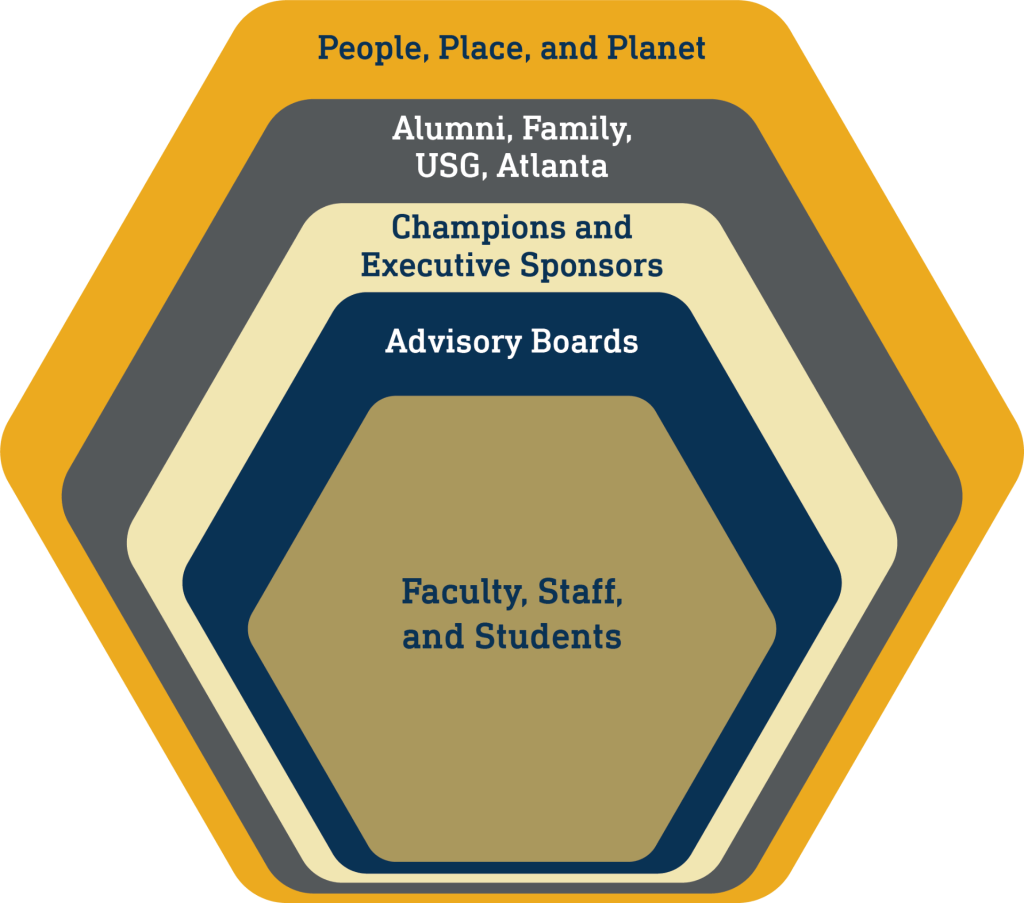The Collective Impact Framework
Cultivating well-being requires collective action. The cultural transformation necessary to improve wellness outcomes for community members over time at a place like Georgia Tech cannot be achieved through any one unit or cabinet area. That is why we use the Collective Impact Framework, which brings people and units together across an organization — in a structured way — to achieve social change.
Collective impact initiatives are successful when they:
Facilitate a common agenda
This means coming together to collectively define a problem and create solutions. Our common agenda is the Cultivate Well-Being strategic initiative, and our solutions are the action strategies in our Cultivate Well-Being Roadmap with a Focus on Faculty and Staff and our Cultivate Well-Being Roadmap with a Focus on Students.
Establish shared measurement
This means tracking progress in a way that allows for continuous improvement, learning, and accountability.
Foster mutually reinforcing activities
This means allowing each person and unit to do what they do best and identifying new ways of working together to achieve the Institute’s goals around cultivating well-being.
Encourage continuous communication
This means building trust through transparency, accountability, shared resources, and strengthening relationships across campus to do the work of cultivating well-being.
Have a strong backbone
This means having a dedicated team that provides the support infrastructure to help the Institute achieve its goals around cultivating well-being


Our Stakeholders
The collective impact process includes multiple levels of stakeholder engagement:
Collaboration with and input from faculty, staff, and students shapes our process and outcomes in multiple ways, which are shared in digital reports and in presentations.
The Advisory Boards are composed of multi-disciplinary leaders, decision-makers, and members of the Tech community who provide strategic direction, champion the effort, and align their own unit’s work to the common agenda.
Champions and Executive Sponsors serve on the President’s Cabinet or in other positions of influence to ensure integration with the Institute Strategic Plan and to designate resources.
The Collective Impact process is also informed by our setting in Atlanta, in collaboration with the University System of Georgia, alumni and families. Similarly, our successes will have a positive impact on the well-being of those with whom we work, play, live, learn and love, as well as honor our interdependence as people, place and planet.